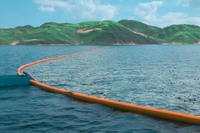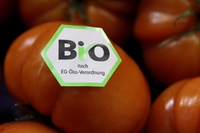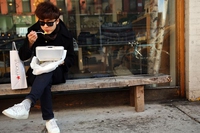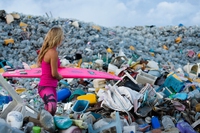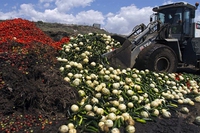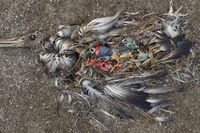
Plastic birds fly over dying seas
According to a new study, 90% of all seabirds have plastic residuals in their guts.
According to a new study, 90% of all seabirds have plastic residuals in their guts.
Recent estimates show that 50% of the Indonesian population lives below $2 a day and 18% below $1 a day. On average, 1.6% of income is spent on health and almost 60% of Indonesians remain without health coverage. Indonesia is also the second most important plastic garbage generator in the world. On average,
Dopo anni di progettazione, di presentazioni e di premi, l’idea di Boyan Slat diventa realtà in Giappone. Ecco cosa significa avere 20 anni e un sogno.
Cateura is a little village on the outskirts of Asunción, in Paraguay. It is known for being the landfill of the whole country, as it is literally sitting on a huge mountain of… waste. Cateura is considered to be one of the poorest areas of Latin America, a neighbourhood where people live with tons of rubbish, get information
Italians like packaging-free shopping. Supermarket chains but also small commercial activities with no packaging are on the rise.
If it’s true that by 2050 the Earth will have to support about 9 billion people, how can we preserve the resources we have for future generations? The report entitled The european environment – state and outlook 2015 (SOER 2015) released today by the European Environment Agency (EEA) aims to answer this question by including and
In force as of July 1, 2015, takeaway foods in the Big Apple will change: they will be better, at least for the environment. The Mayor of New York, Bill de Blasio, announced the decision of banning food and drinks containers made of expanded polystyrene foam. This ecological decision follows the statement by the
Rubbish piles up in paradise too, as proven by an island in the Maldives. A sad story told by US surfer Alison Teal, who is dedicating her life to sustainability.
Berlin launches its first supermarket with no packaging. Disposable packaging and wrappers difficult to be disposed of are things of the past. You’ll only find products in bulk. In Berlin there is a new way of shopping at the supermarket.
The amount of food we throw away before it reaches our tables could stop malnutrition. Here’s the report that reveals it.

